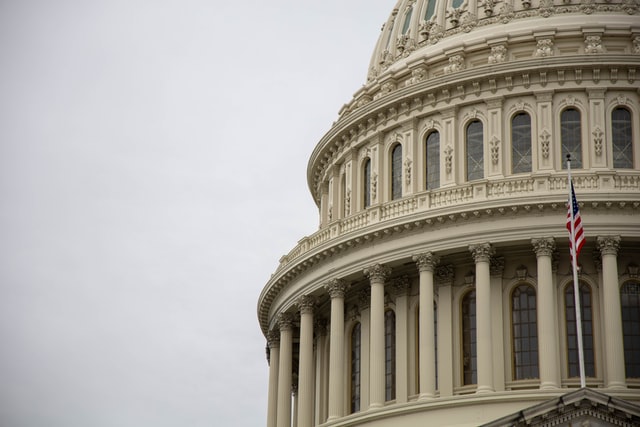
In the winter and early spring of 2020, the Covid-19 pandemic threw into stark relief the actual and possible roles of government and markets in people’s lives. In the US, stay-at-home orders, mandated shutdowns, and relief packages that might have seemed unthinkable mere weeks before were adopted. For some Americans, this meant the possibility of the kind of renewed civic federalism that arose after World War II; for others, it implied that we were cementing the power of Big Brother over our lives. At the same time, shortages and hoarding of goods (e.g. PPE, toilet paper, hand sanitizer, and hydroxychloroquine) along with the low pay of many essential workers revealed the perils of market economies.
In a recent study we analyzed the effect of the Covid-19 pandemic on the attitudes of young people (aged 18–25) toward government and markets in the US. Young people’s attitudes are particularly important to gauge. Compared to other age groups, they are the most politically impressionable and the hardest hit in the long-run by economic downturns. For example, for young people, exposure to a recession has been shown to increase support permanently for redistribution, and exposure to an epidemic has been shown to erode confidence in political institutions for at least two decades. For many Americans in early adulthood, November 2020 will be their first presidential election, making the immediate and long-run political stakes of how their attitudes are affected by the pandemic particularly high.
We measured the attitudes of students at three different American colleges/universities to government and markets in an online survey in September 2019. We then surveyed the same students in December 2019 and May 2020, using the same online survey. While their government and market attitudes were stable between September and December 2019, the two survey waves preceding the onset of the pandemic, their support for markets significantly declined in the May 2020 survey: participants were less likely to think markets are efficient and more likely to think they can cause harm.
The effect of the onset of the pandemic on attitudes toward governments was more nuanced. For example, support significantly increased for bigger government, but support for specific redistributive policies (i.e. the minimum wage, food stamps, and taxes on estates or extremely high incomes) did not change, nor did support for the government to play a role in the various specific capacities listed in the survey (e.g. ensuring access to health care, responding to natural disasters, and helping people get out of poverty). And while support for bigger government increased after the onset of the pandemic, both contentment with and trust in government significantly decreased. Such results would emerge if support for specific government policies is less mutable than is more general support for government and markets; or it may be that support for bigger government assumes an idealized government whereas support for specific capacities and policies are grounded in their existing forms.
Some recent studies have highlighted the partisan nature of Covid-19 attitudes and perceptions in the US, with Democrats significantly more pessimistic than Republicans about their own chances of infection, the severity of the pandemic, and the severity of the ensuing economic downturn, and Democratic governors significantly more likely than Republican governors to issue stay-at-home orders. Separately analyzing the effects of the onset of the pandemic for politically progressive and conservative respondents, we found that the effects listed above were unique to the politically progressive respondents, with few significant changes in attitudes after the onset of the pandemic among less politically progressive respondents.
© Homa Zarghamee
Homa Zarghamee is associate professor of economics at Barnard College, USA.
Find more IZA World of Labor coronavirus content on our curated topics pages: National responses to Covid-19 and Covid-19—Pandemics and the labor market.
Please note:
We recognize that IZA World of Labor articles may prompt discussion and possibly controversy. Opinion pieces, such as the one above, capture ideas and debates concisely, and anchor them with real-world examples. Opinions stated here do not necessarily reflect those of the IZA.